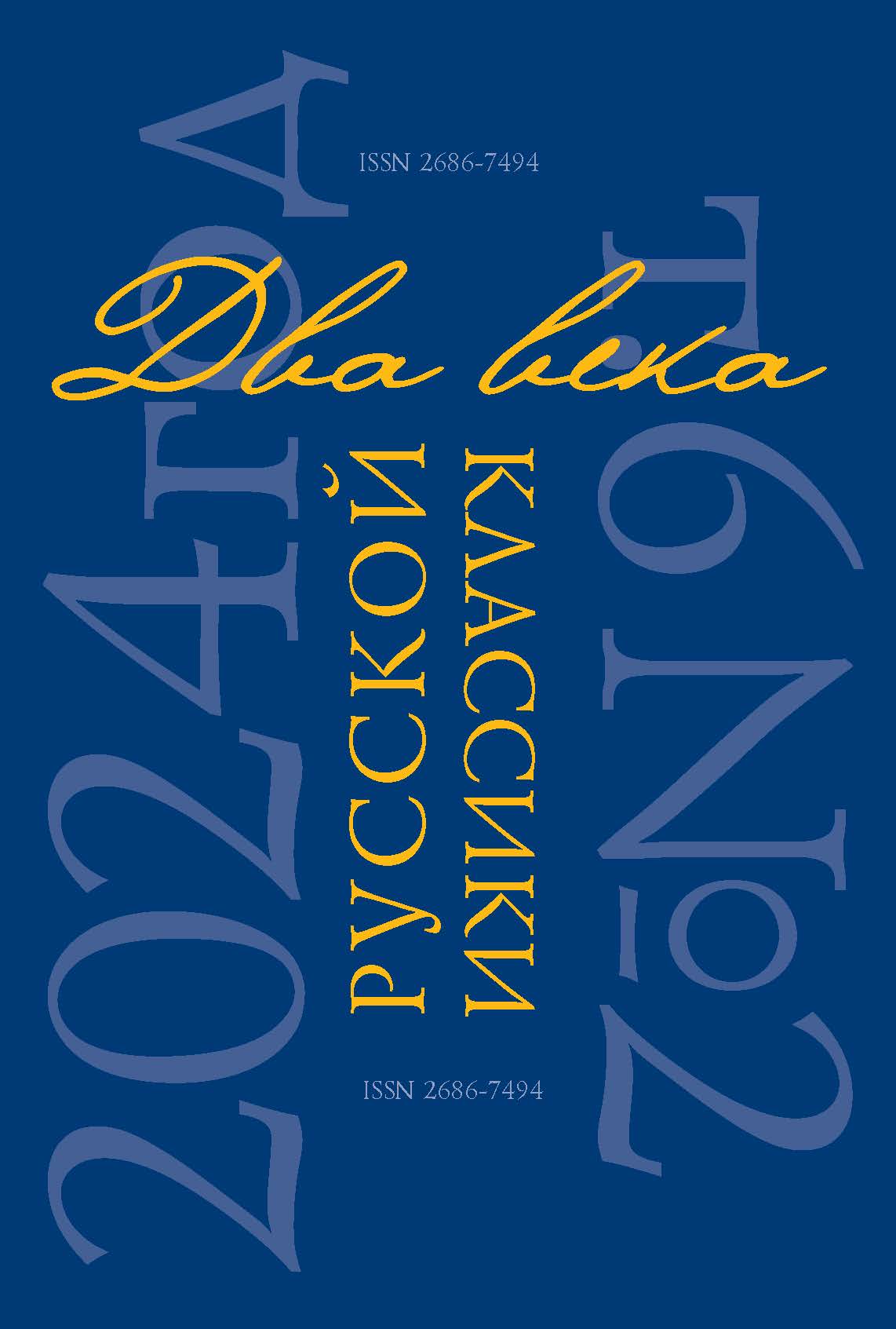Abstract: The article shows that during the era of the creation of the epic “War and Peace” L. N. Tolstoy shared the idea of individual immortality and interpreted it by I. G. Herder’s concept of palingenesis, i. e., as the rebirth of a person into a more perfect being in the next life. The hypothesis is substantiated by the perception of the philosophy of A. Schopenhauer in the 1869–1870s led to a change in Tolstoy’s ideas about the significance of human individuality, and this was reflected in the artistic solution of the image of Platon Karataev and the description of the religious faith acquired by Pierre Bezukhov. The influence of Schopenhauer is most clear in Tolstoy’s notes from February – July 1870, where the model of immortality as palingenesis appeared in Schopenhauer’s version, i. e., without the idea of the improvement of individuals in a chain of rebirths. The ideological revolution of the late 1870s led Tolstoy to completely abandon the concept of individual immortality in favor of “collective immortality,” immortality in a single humanity (in the treatise “What I Believe”). However, in subsequent treatises and especially in his diary, Tolstoy completely overcomes the influence of Schopenhauer and returns to the idea of individual immortality according to Herder’s model of palingenesis.
References
Dolzhenkov, P. N. “Tolstoi i Shopengauer: ʽAnna Karenina’.” [“Tolstoy and Schopenhauer: ʽAnna Karenina’.”] Voprosy filosofii, no. 2, 2016, pp. 105–112. (In Russ.)
Evlampiev, I. I. “Vliianie filosofii A. Shopengauera na istoricheskie vozzreniia L. N. Tolstogo v romane ʽVoina i mir’.” [“The Influence of A. Schopenhauer’s Philosophy on the Historical Views of L. N. Tolstoy in the Novel ʽWar and Peace’.”] Veche. Ezhegodnik kafedry russkoi filosofii i kul’tury SPbGU-2019 [Veche. Yearbook of the Department of Russian Philosophy and Culture of St. Petersburg State University-2019]. St. Petersburg, St. Petersburg Philosophical Society Publ., 2019, pp. 15–36. (In Russ.)
Evlampiev, I. I. Neiskazhennoe khristianstvo i ego sud’ba v evropeiskoi istorii [Undistorted Christianity and Its Fate in European History]. St. Petersburg, TsSO Publ., 2024. 808 p. (In Russ.)
Evlampiev, I. I. “O filosofskikh osnovaniiakh religioznykh vozzrenii F. Dostoevskogo i L. Tolstogo” [“On the Philosophical Foundations of the Religious Views of F. Dostoevsky and L. Tolstoy”]. Dostoevskii i mirovaia kul’tura. Al’manakh [Dostoevsky and World Culture. Almanac], issue 35. St. Petersburg, Serebryanyi vek Publ., 2017, pp. 298–312. (In Russ.)
Ishimbaeva, G. G. “Filosofiia Gerdera v kontekste epopei L. Tolstogo ʽVoina i mir’.” [“Herder’s Philosophy in the Context of L. Tolstoy’s Epic ʽWar and Peace’.”] Vestnik Russkoi khristianskoi gumanitarnoi akademii, issue 1, 2009, pp. 99–106. (In Russ.)
Krasnov, G. V. “Filosofiia Gerdera v tvorchestve Tolstogo” [“Herder’s Philosophy in Tolstoy’s Works”]. Tolstoi, L. N. Stat’i i materialy [Articles and Materials], no. 4. Gorky, Gorky University named after N. I. Lobachevsky Publ., 1961, pp. 157–174. (In Russ.)
Kuznetsova, V. V. “Khristianizatsiia idei palingenesii v nemetskom romantizme” [“Christianization of the Idea of Halingenesia in German Romanticism”]. Symposium. Khristianskaia kul’tura na poroge tret’ego tysiacheletiia [Symposium. Christian Culture on the Threshold of the Third Millennium], issue 5. St. Petersburg, St. Petersburg Philosophical Society Publ., 2000, pp. 41–43. (In Russ.)
Monin, M. A. “Tolstoi i Fet. Dva prochteniia Shopengauera” [“Tolstoy and Fet. Two Readings of Schopenhauer”]. Voprosy filosofii, no. 3, 2001, pp. 111–126. (In Russ.)
Nikolaeva, N. A. “Emblema v proizvedeniiakh L. N. Tolstogo” [“Emblem in L. N. Tolstoy’s Works”]. Vestnik Sankt-Peterburgskogo gumanitarnogo universiteta. Iazyk i literatura, vol. 15, issue 1, 2018, pp. 82–93. (In Russ.)
Podoroga, B. V. “Kant i Gerder. Spor ob istorii: metafizika i kritika” [“Kant and Herder. Dispute About History: Metaphysics and Criticism”]. Filosofiia i nauka: problemy sootneseniia. Aleshinskie chteniia-2016 [Philosophy and Science: Problems of Correlation. Aleshin Readings-2016]. Moscow, Russian State University for the Humanities Publ., 2017, pp. 362–373. (In Russ.)
Remizov, V. B. “Obretenie svoego puti: (L. Tolstoy chitaet I. Kanta i A. Shopengauera)” [“Finding Your Path: (L. Tolstoy Reading I. Kant and A. Schopenhauer)”]. Filologicheskie zapiski, issue 16, 2001, pp. 61–78. (In Russ.)
Eikhenbaum, B. M. “Tolstoi i Shopengauer (k voprosu o sozdanii ʽAnny Kareninoi’)” [“Tolstoy and Schopenhauer (On the Issue of the Creation of ʽAnna Karenina’)”]. Literaturnyi sovremennik, no. 11, 1935, pp. 129–148. (In Russ.)









